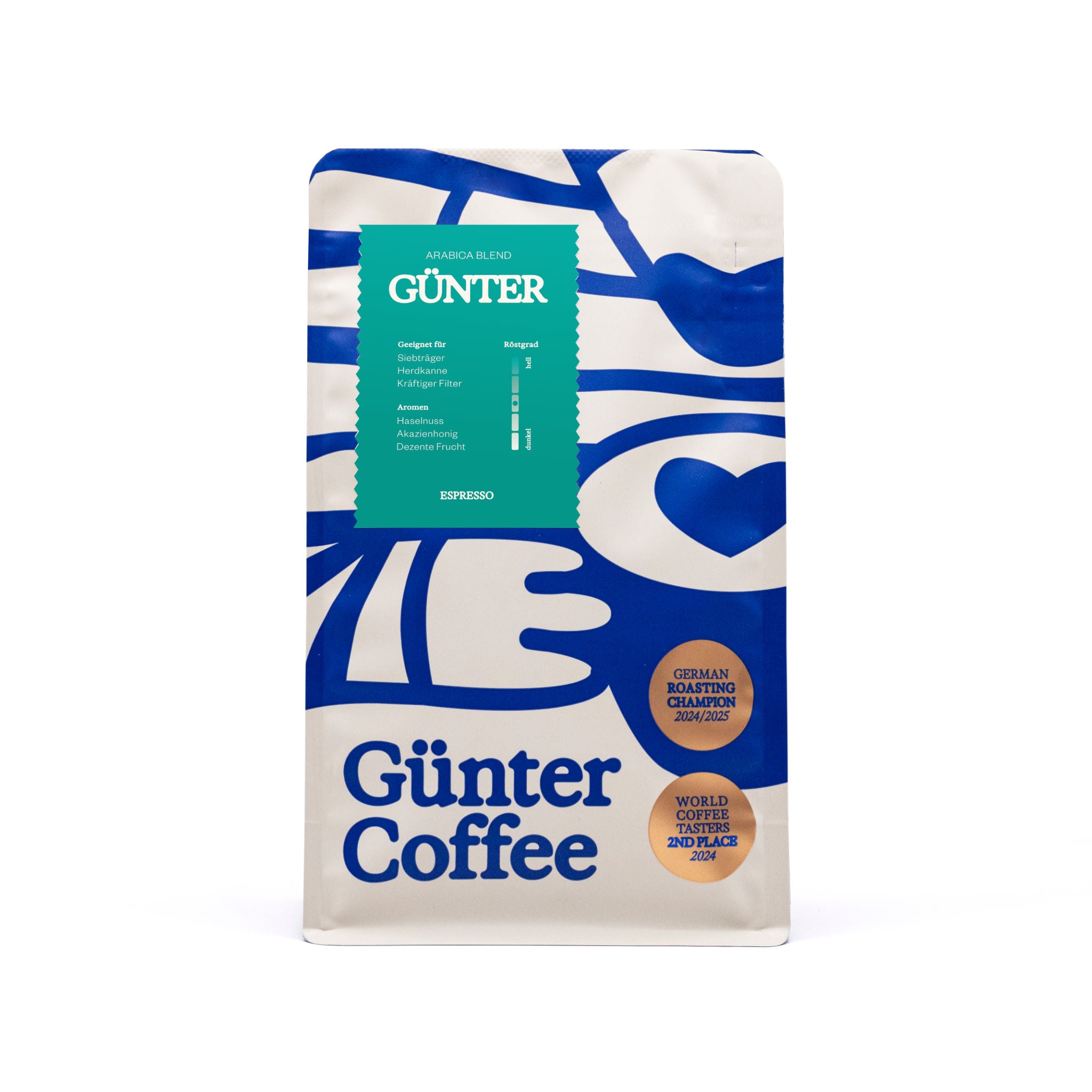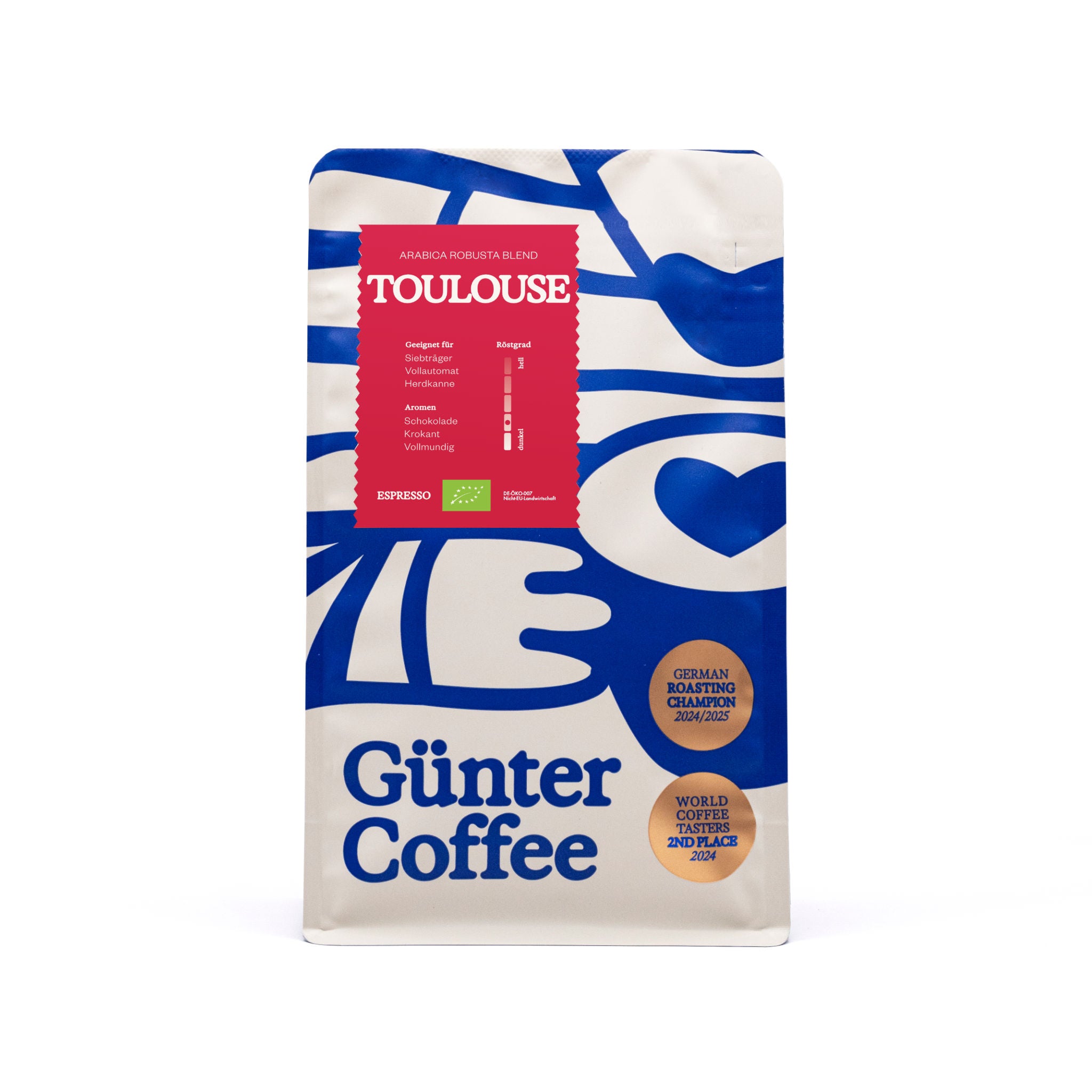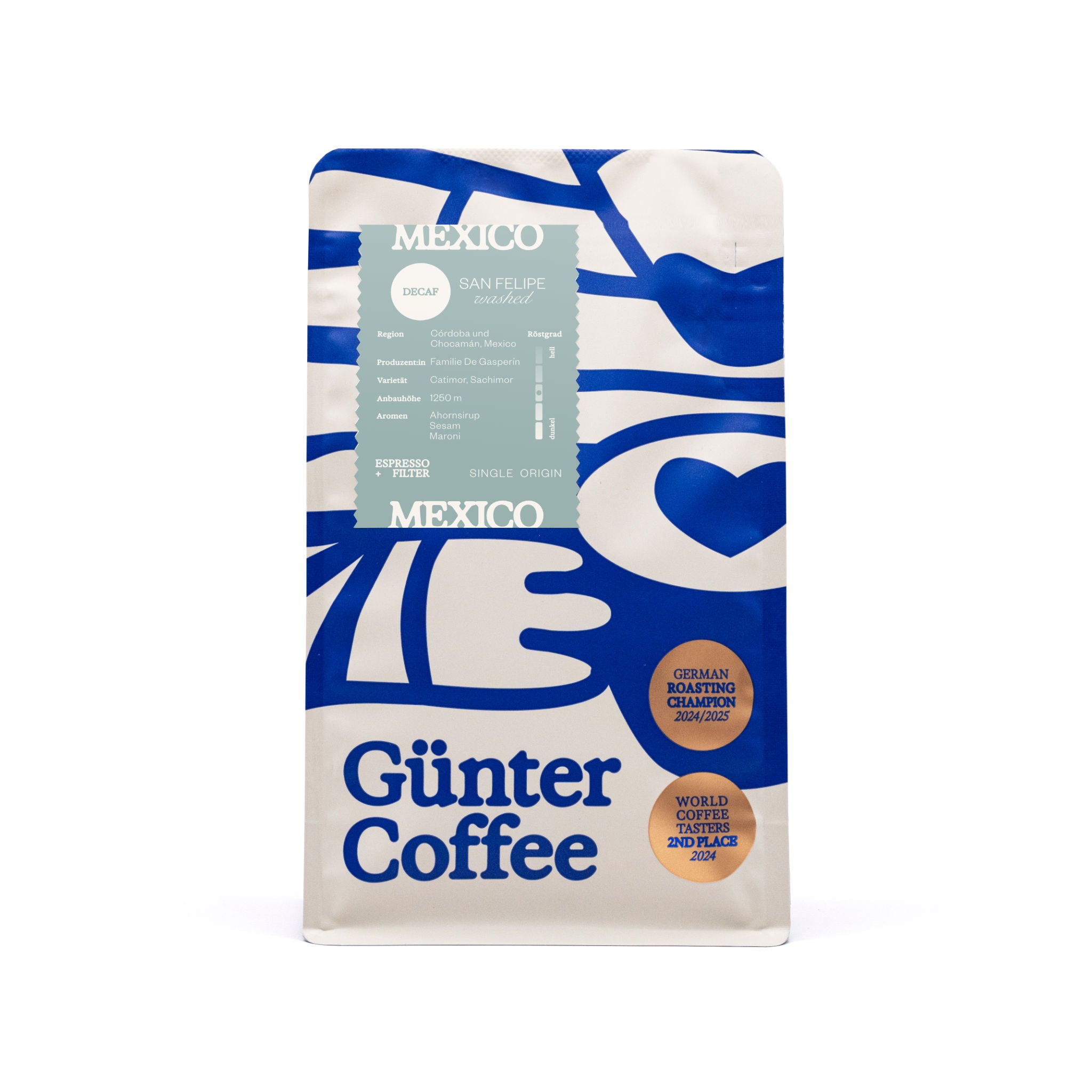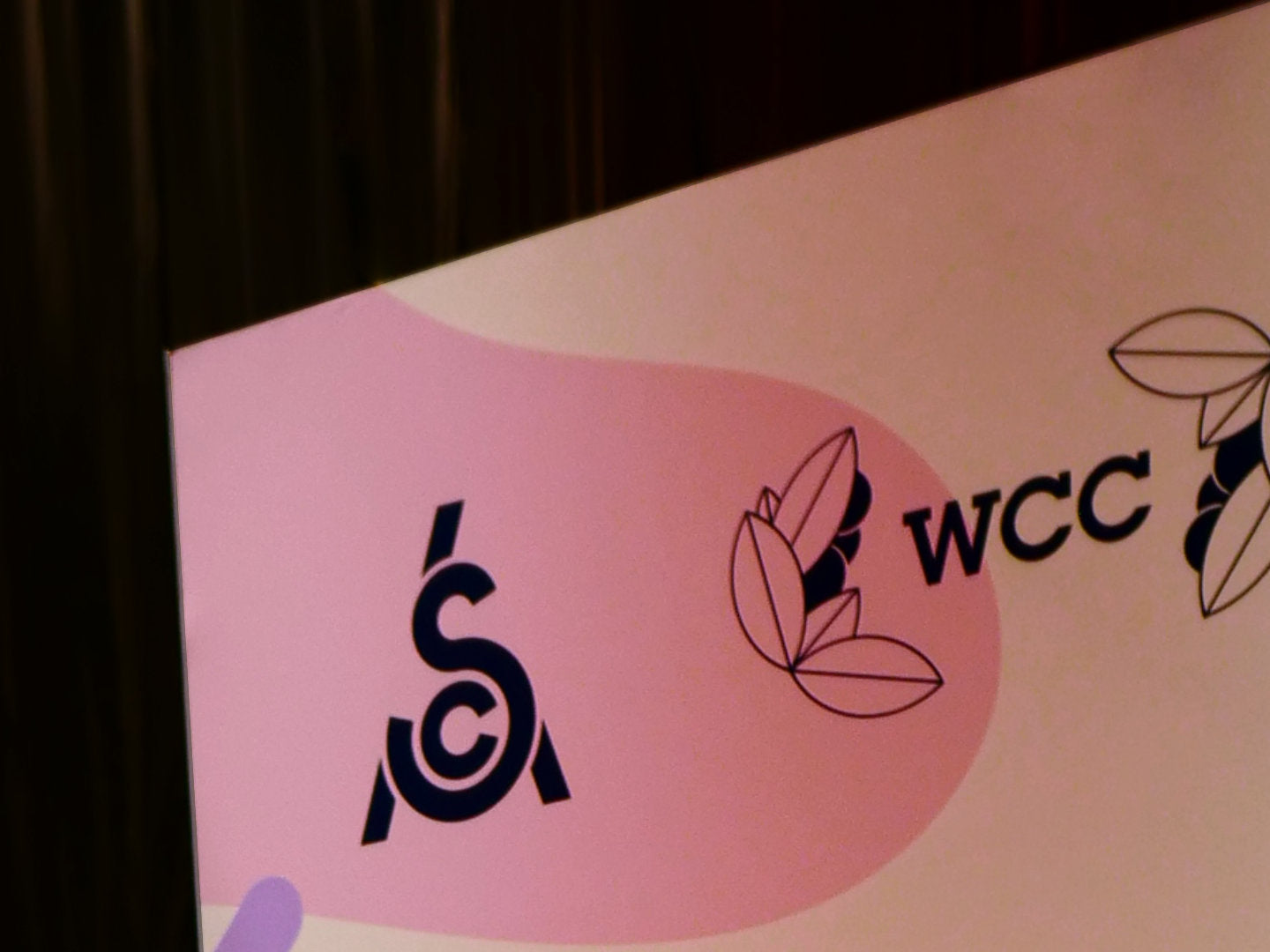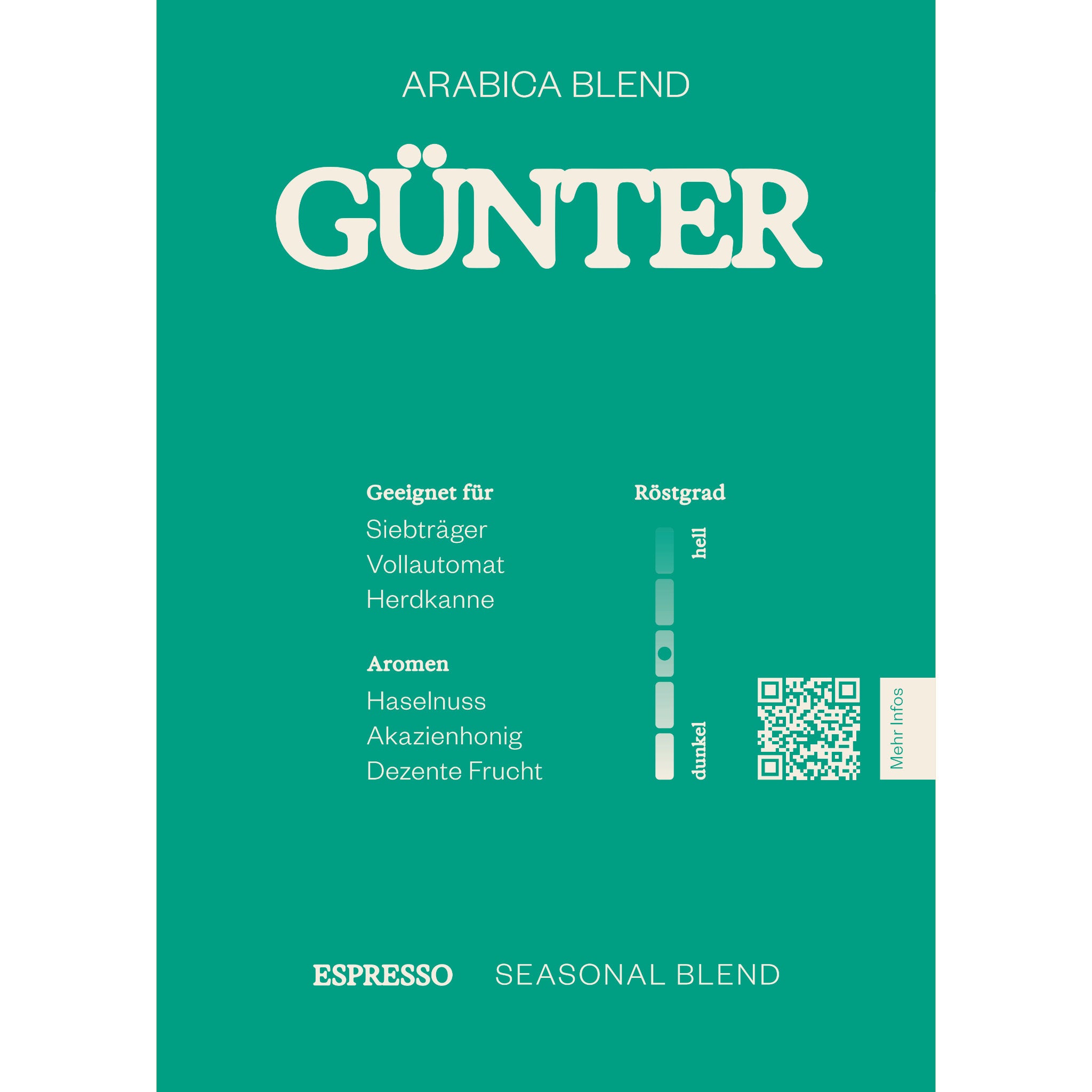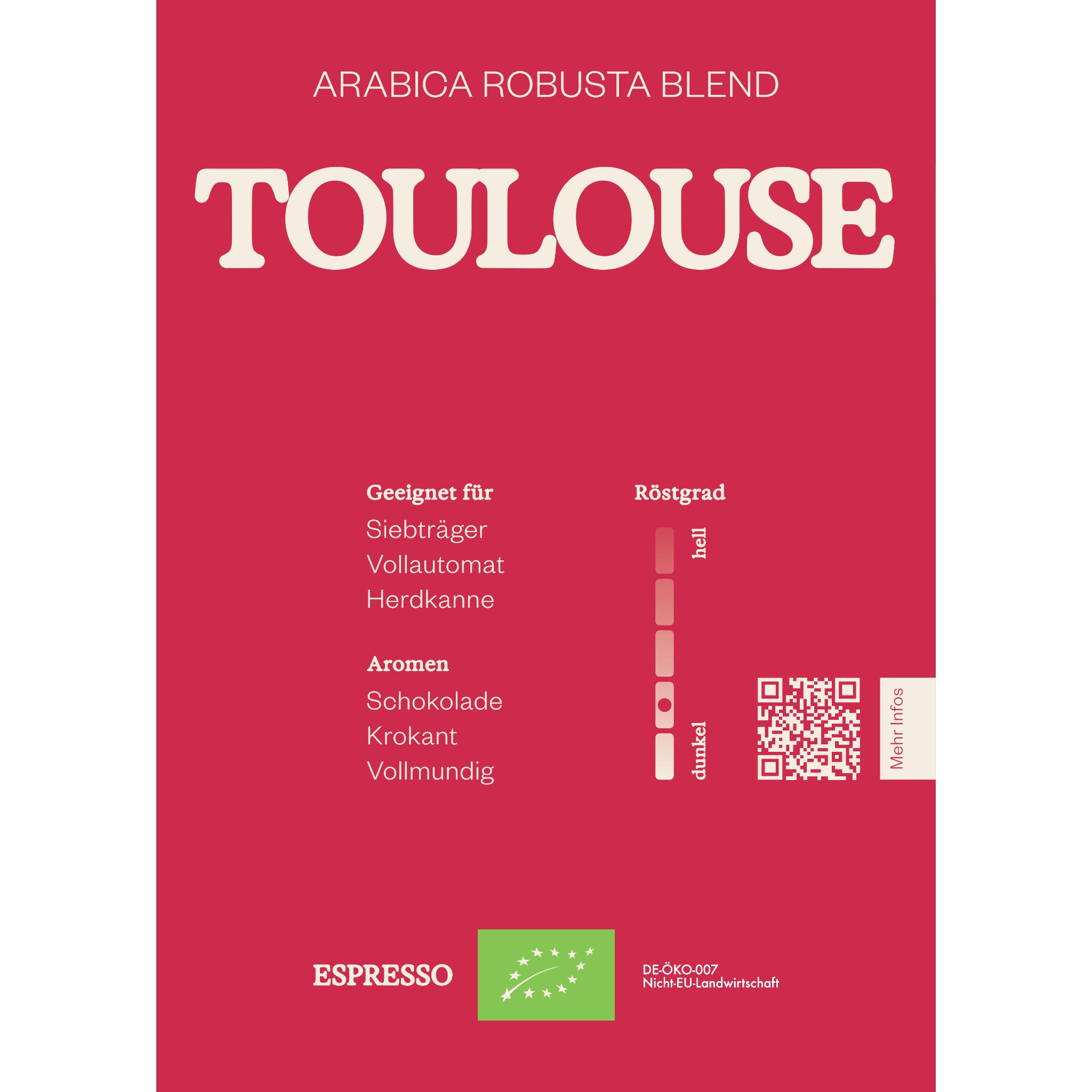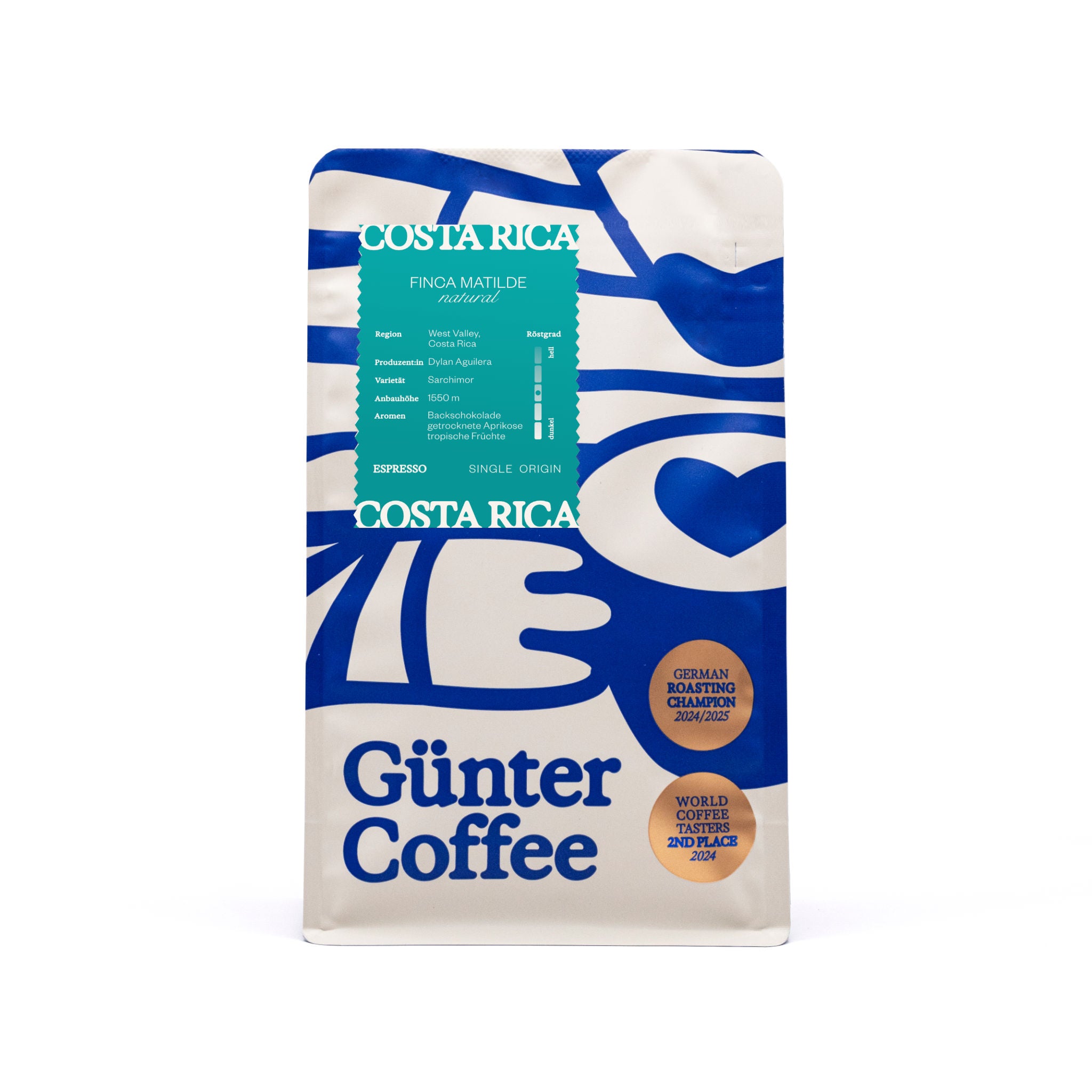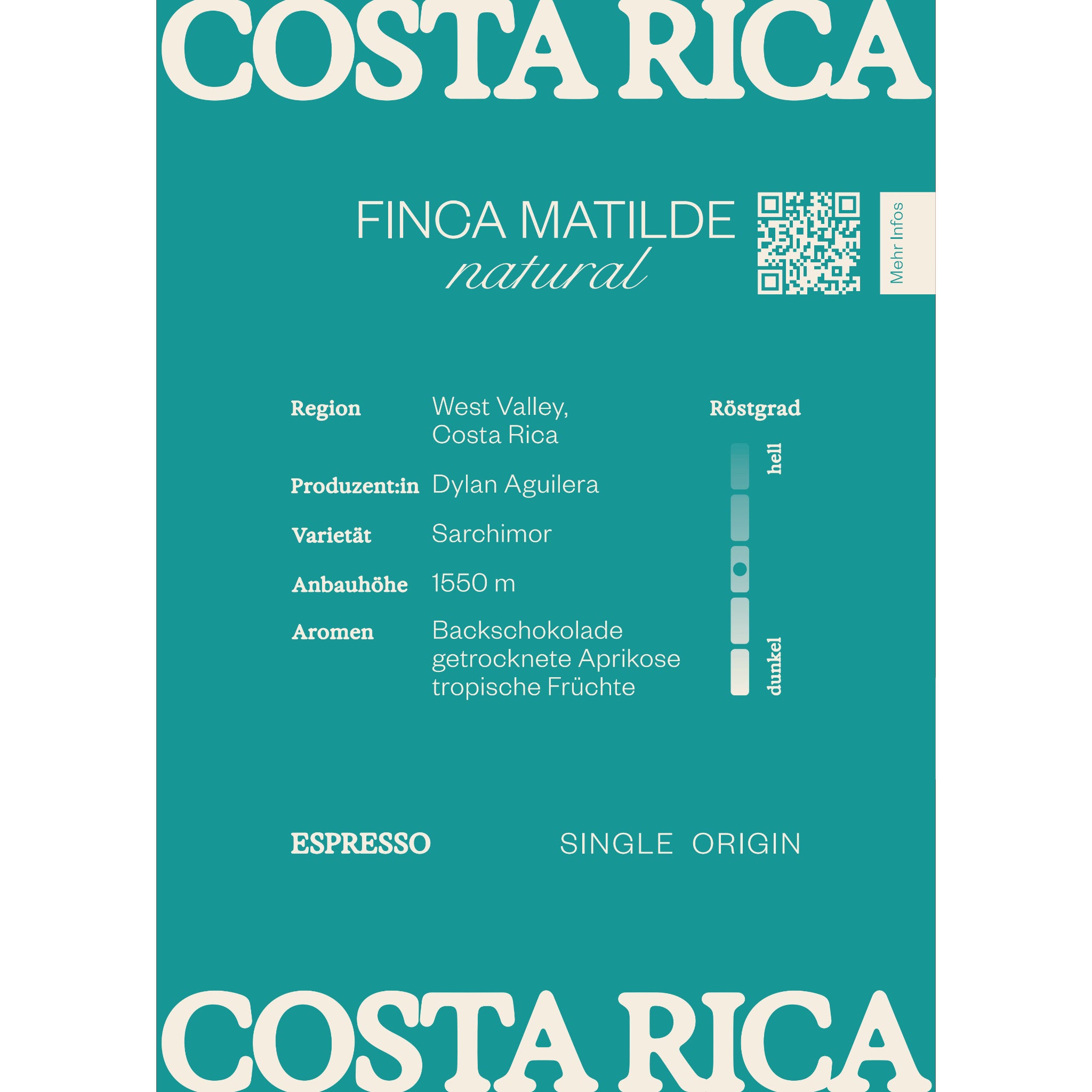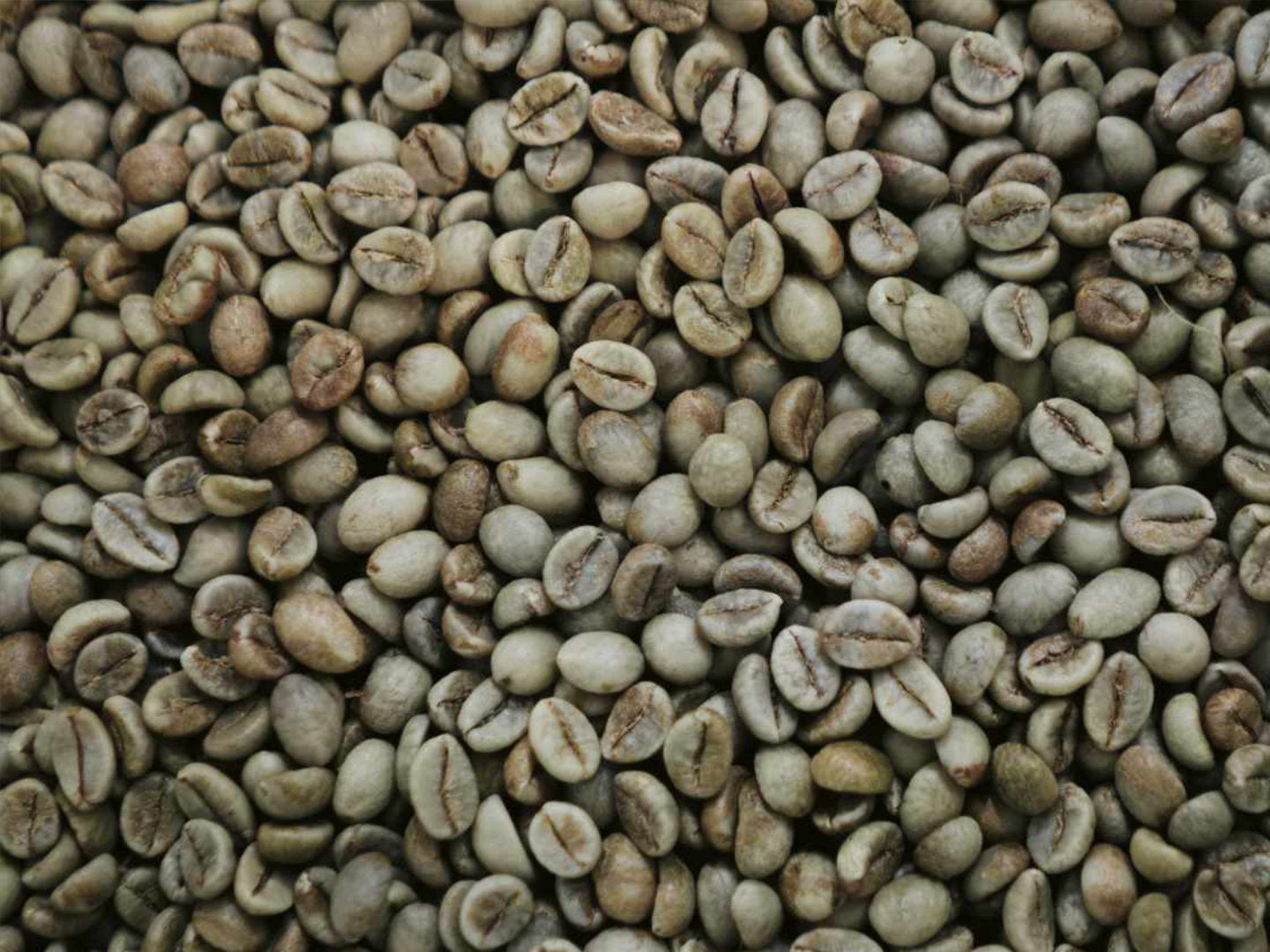What is the Specialty Coffee Association?
The Specialty Coffee Association, or SCA for short, is a global organization dedicated to promoting specialty coffee, which is coffee of the highest sorting grade and excellent taste potential. To this end, its staff and activists set standards, offer training, and organize events that bring together both coffee lovers and industry professionals. In this article, we take a closer look at the history of the SCA, its goals, events, and competitions.
Where does the term specialty coffee come from?
The term goes back to the Norwegian Erna Knutsen, who is said to have used it for the first time in 1974 in the US magazine Tea & Coffee Trade Journal. She was a pioneer of good coffee, helped to found the Specialty Coffee Association of America and fought for women in the coffee industry. You can read more about specialty coffee here.
History of the Specialty Coffee Association
The history of the SCA began in 1982 with the founding of the Specialty Coffee Association of America, or SCAA for short. It quickly gained popularity in the American coffee industry. The SCAA set early standards in the evaluation of specialty coffee, promoted sustainable practices and offered extensive training programs. Its main goal was to improve the quality of coffee from bean to cup and to raise social awareness of the various aspects of coffee enjoyment.
In 1998, the Specialty Coffee Association of Europe, or SCAE for short, was founded. The SCAE was dedicated to training baristas, roasters and other professionals, as well as promoting the exchange of knowledge and the dissemination of best practices. Here too, quality was the focus, supported by numerous events and competitions to promote the knowledge and skills of its members.
Merger to form the Specialty Coffee Association
In 2017, the boards of both organizations decided to merge SCAA and SCAE to join forces by consolidating resources, building a global network, and better delivering on their shared vision of improving the coffee industry around the world. The SCA now represents a broad spectrum of members from all different countries and parts of the coffee chain, from producers to consumers.
Goals of the Specialty Coffee Association
The work, planning and goals of the SCA are based on a five-year strategy. The current period ends in 2025. Currently, the work in the organization focuses on four core areas:
- A sustainability agenda that is committed to the fair distribution of values,
- professional development and individual growth,
- building connections at global and local levels and
- the provision of outstanding services
National associations of the Specialty Coffee Association
In addition to the umbrella organization, there are also national SCA associations all over the world. They organize the national competitions in which you have to take part and win in order to compete in the world championships. In addition to the Specialty Coffee Association of Germany, there are also associations in 54 other countries. An overview can be found on the SCA website.
Events and competitions
The SCA organizes numerous events and competitions for the coffee industry every year. These include two major coffee-related trade fairs in different countries on different continents. In 2023, the World of Coffee trade fair stopped in Athens and Dubai, and the Specialty Coffee Expo was also held in Portland, USA. Some of the trade fairs also hosted the World Coffee Championships, with the exception of the Roasting Championship, Latte Art Championship and the Coffee in Good Spirits competition, which were held in Taiwan in 2023.
As in other industries, the trade fairs help to network worldwide. Here you can meet producers from the countries of origin, a large number of roasting companies and manufacturers of machines and other accessories.
World Coffee Events
The World Coffee Events, or WCE for short, is a subsidiary of the SCA and is responsible for organizing the World Coffee Championships in what are now seven disciplines. It all started in 2000 with the first competition, the World Barista Championships. Over the years, other competitions were added:
World Barista Championship: The most prestigious competition for baristas worldwide. Participants prepare espresso, milk drinks and their own creations in 15 minutes and are judged on taste, technique and presentation. Winners include the well-known English barista James Hoffman, who has over 2.13 million subscribers on YouTube and won the competition in 2007.
World Brewers Cup: A competition that celebrates the art of hand brewing coffee. Participants are tested on their ability to get the best flavor out of different coffees. They are allowed to bring and use specially selected and roasted coffee beans, but must also brew the best result from the same beans provided to all.
World Cup Tasters Championship: This is about recognizing and distinguishing coffees. The participants have to find the cup that differs from the other two in the shortest possible time from 8 sets of 3 cups. They have eight minutes to do this. In the event of a tie, the clock decides. In 2024, Aurore Ceretta from the Günter Coffee Roasters in Chicago became vice world champion in cup tasting. In the end, she was only 10 seconds behind the Brazilian Dionatan Almeida, who also tasted 8 out of 8 correct cups.
World Coffee in Good Spirits Championship: A competition that explores the marriage of coffee and alcohol. Participants prepare coffee cocktails that require both coffee and mixology skills and creativity.
World Latte Art Championship: This is where the art of milk is celebrated. Participants create impressive patterns and images in milk foam on espresso, which are then judged by an expert jury.
World Coffee Roasting Championship: This competition is all about coffee roasting. The best roasters in the world come together here to complete various tasks over several days. They have to evaluate the quality of green coffee, do a test roast and taste/describe it and finally reproduce it as accurately as possible for the competition roast.
World Cezve/Ibrik Championship: One of the oldest tools for making coffee is called an Ibrik or Cezve. It is a cup-like vessel that has a long stem instead of a handle. It is usually made of copper or brass. The coffee is brewed using a heating element in which sand is heated. The championship has been held since 2011 and is intended to celebrate the ancient cultural tradition of brewing coffee with the Ibrik.
If you want to know more about the World Coffee Championships, we recommend you read our blog article.
What the Specialty Coffee Association offers
The SCA offers its members and interested parties many services and resources. These include educational programs, scientific publications, market studies, technical standards and definitions, as well as protocols and processes for various tasks along the coffee value chain. In addition to the trade fairs and competitions mentioned above, the SCA also organizes regular conferences.
One project that deserves special attention in 2023 and 2024 is a series of documents on the Coffee Value Assessment, which provides a guide to evaluating coffee. The SCA writes in its 2023 Annual Report:
"Launched in 2023, the Coffee Value Assessment provides a complete, 'high-resolution' picture of a given coffee, encompassing four types of assessment: physical, descriptive, affective and extrinsic. The assessment is based on best practices from sensory science and the role of specialty coffee in distributing value across the supply chain, and is designed for the global, diverse specialty coffee industry of the present (and future)."
Financing and financial position of the Specialty Coffee Association
According to its own information in its 2023 annual report, the non-profit organization’s finances were in very bad shape at the start of the Covid pandemic in 2020. The SCA was in the red and was $2 million in the red. Three years later, the SCA is in a much better position: According to its 2023 annual financial statements, its capital was an impressive $12 million. The SCA generates most of its income from events and its training offerings, which account for over 85% of total income. Additional income comes from membership fees and subscriptions as well as “other income” that is not specified in more detail. Sponsorship deals such as the cooperation with coffee machine manufacturer Thermoplan, which has existed since 2024, have caused some controversy. Thermoplan will provide the fully automatic espresso machines for the World Coffee Championships in the Latte Art category from 2024 to 2027.

Extract from the SCA's 2023 Annual Report, page 14.
Membership models and prices
The SCA offers various membership models to meet the different needs of its members. The membership model is to be renewed at the end of 2024. The following categories and conditions currently apply:
- Individual Membership: For individuals seeking access to educational resources, events and a global network. The price is 90 euros per year.
- Company Membership: For companies of any size that want to take advantage of additional benefits such as advertising opportunities and advanced training. Prices vary depending on company size and start at 390 euros per year for small companies with less than 1 million USD in revenue. The largest membership package costs 2400 euros per year and is aimed at companies with revenues of more than 20 million USD.
- NGO/NPO: An SCA membership for associations, non-governmental organizations (NGOs) or media companies active in the coffee industry. Cost: 390 euros for up to three members in the organization.
Community, criticism and our conclusion
The Specialty Coffee Association plays a central role in the coffee industry by promoting quality, preparing knowledge, offering training and creating platforms for exchange and networking. At the same time, the SCA is repeatedly criticized by the very vocal community in the specialty coffee industry. The events and competitions are only possible because many coffee enthusiasts help on a voluntary basis. They are volunteers who are also involved in the specialty environment because of the noble visions of the third coffee wave. Ecological and social justice are an integral part of this. This was shown on the one hand in the protest for the approval of milk alternatives in the barista competition and on the other hand in the fact that the calls for lower hurdles for participation in the competitions are becoming louder and louder. From entry fees to necessary equipment and coffee prices: the events are becoming more and more expensive and therefore more elitist. We think it is good that lively discussions are part of the SCA. It is right that grievances are addressed. At the same time, we think it is important that the organization and the work of all its members and volunteers exist. At this point we would especially like to thank the team at SCA Germany.
The Specialty Coffee Association plays a big role for us: without it, there would be no competitions in which Aurore and Philip have often taken part and been successful. Most recently, Aurore Ceretta became Vice World Champion in Cup Tasting and Philip Weller became German Roasting Champion 2024. As a company, we are a member of the organization and are always happy to meet committed volunteer members at trade fairs and competitions.

